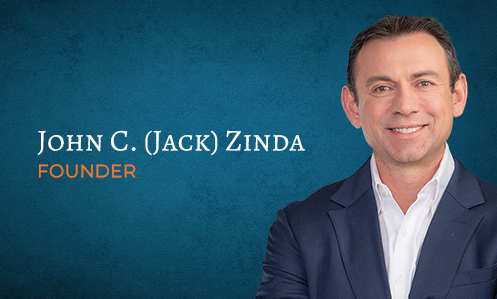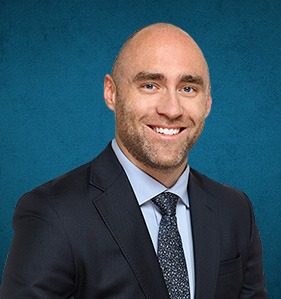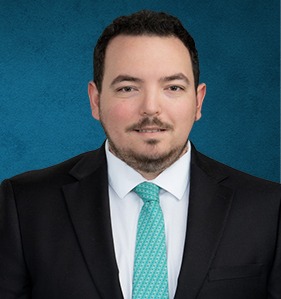CALL (800) 863-5312 TO SPEAK WITH EXPERIENCED personal injury lawyers in Miami FOR FREE
In Florida alone there were a total of 401,867 car crashes, which resulted in 3,185 fatalities and 236,753 injuries in 2019. Car accidents can happen in the blink of an eye; when they do happen, it can be hard to know what to do next and who to trust. Soon after the accident, many people will contact you to ask for statements about the crash, but not everyone you talk to will have your best interests at heart.
If you have suffered injuries from a car collision, it is best to speak with an attorney who can help you handle insurance claims, medical bills, and even lawsuits. If you or a loved one have been the victim of a car accident, call Zinda Law Group at (800) 863-5312 for a free consultation with an experienced car accident lawyer in Miami.
What to do after a car accident
Though you may have been unprepared for the intrusion of a car wreck into your life, you can make the best of it by doing three very important things. Getting these three things done after a car accident will help strengthen not only your recovery but also the chances of your personal injury case being successful.
Seek Medical Attention
One of the first things you should do if you were involved in a car accident is seek immediate medical attention. Even if you feel like you were not injured or that your injuries are not severe, you should still seek medical attention from a qualified medical professional because some injuries may manifest hours or even days after the accident.
Make sure to follow your physician’s instructions, take all of your medications as prescribed, and return to your physician for follow-up appointments. Being pro-active and consistent with your medical treatment after the accident shows continuity in your treatment and will make the foundation of your personal injury claim stronger because it will make it harder for the opposing party to dismiss or minimize your injuries. If you wait too long to receive medical treatment or are inconsistent with your medical care, it may give an insurance claims adjuster grounds to diminish the impact of your injuries, which may lead to you receiving less compensation for your claims.
Obtain a Crash Report
Florida law requires that all serious car accidents be documented by police officers in a crash report. If you were hurt in a car wreck that involved a fatality, DUI, hit and run, or commercial vehicle, or required a tow truck to remove a badly damaged vehicle—where apparent damage is over $500—you must call 911 and wait for law enforcement officers to assess the scene and create a crash report. If the accident was minor, you can self-report the accident by filling out a form and emailing it to SelfReportCrashes@flhsmv.gov or by mailing the form to the Florida Department of Highway Safety and Motor Vehicles Crash Records at 2900 Apalachee Parkway, MS 28, Tallahassee, FL 32399.
Obtain a copy of the car accident report because you will need it for insurance purposes and to support any legal claims you may have. You can obtain a copy of the crash report online by going to Florida’s crash portal website or by going to the Florida Highway Patrol Troop station in person, nearest to where the crash occurred.
Gather Relevant Documents
In addition to the accident report, you will want to gather all documents and records associated with the accident. Examples of documents you should compile include the accident report, any police reports, vehicle repair bills, medical documents, employer records evidencing missed days of work, and any pictures that you may have taken including pictures of the accident scene, your injuries, or damage to your vehicle. Gathering these documents as you acquire them will greatly assist your attorney with your representation should you choose to file a lawsuit.
florida’S MOTOR VEHICLE “no-fault” law
Florida is one of twelve states that have a “No-Fault” motor vehicle law. The law mandates that drivers must carry insurance and limits the types of damages available to accident victims. Specifically, Florida’s No-Fault Law requires that when a car accident occurs, each party must turn to their own insurance policies to cover certain expenses associated with the accident regardless of who caused the accident or who was at fault. However, please note that the “No-Fault” rule does not apply to claims for vehicle damage, meaning that those claims can be asserted against the at fault driver without limitation.
Car Insurance Requirements Under the No-Fault Law
All four-wheeled vehicles in Florida must be insured with a minimum of $10,000 in Personal Injury Protection (PIP) and a minimum of $10,000 in Property Damage Liability (PDL). Under the No-Fault law, when a person is injured in a car accident, they must report the accident to their own insurance carrier and their PIP insurance will cover a maximum of $10,000 for their personal injury expenses or up to 80% of medical bills and 60% of lost wages. There is also a $5,000 death benefit available under the PIP policy in the event that the insured party does not survive the accident. PDL insurance also covers up to $10,000 in damages done to the other party’s personal property.
Meeting the Serious Injury Threshold
Florida’s No-Fault Law is meant to cover economic damages (compensation for monetary losses or expenses incurred as a result of the accident) but does not cover non-economic damages (things like pain and suffering) unless a person’s injuries are severe enough to meet the “serious injury threshold” which is defined by statute.
A serious injury as defined under Florida’s “No-Fault” law includes:
- Significant and permanent loss of an important bodily function
- Permanent injury within a reasonable degree of medical probability, other than scarring or disfigurement
- Significant and permanent scarring or disfigurement
- Death
If a person’s injuries fall into one of the categories listed above, they can circumvent the “No-Fault” system and file a personal injury lawsuit against the person who caused their injuries, from whom they may recover both economic and non-economic damages.
Assertable claims after suffering from serious injuries
Remember that unless you meet the “serious injury” threshold, you must submit your claims for medical bills and other associated costs to your own insurance carrier. However, if your injuries qualify as severe as defined by state statute, you may file a personal injury case and recover economic and non-economic damages. The type of legal claims that you can assert if you were seriously injured in a car accident will depend on the specific details of your case, but the most common types of claims that arise from car accident cases include negligence and wrongful death suits.
Negligence
A negligence action is a legal claim asserting that the defendant’s careless and reckless behavior breached their duty to act as a reasonable person in the circumstances and caused the plaintiff’s injuries. Florida law defines negligence as failure to use reasonable care, which is the care that a reasonably careful person would use under like circumstances. Negligence is doing something that a reasonably careful person would not do under like circumstances or failing to do something that a reasonably careful person would do under like circumstances.
Four elements must be met to establish a negligence claim: duty, breach, causation, and damages.
1. Duty: The plaintiff must prove that the defendant owed the plaintiff a duty of care. In other words, the plaintiff must show that the defendant had a duty to conform to a certain standard of care.
2. Breach of Duty: The defendant breached the applicable standard of care. In other words, the defendant’s actions fell below the standard of care.
3. Causation: The plaintiff must prove that the defendant caused the plaintiff’s injuries.
4. Damages: The plaintiff must show that he or she suffered actual damages or some kind of harm.
In order to succeed on a negligence claim, the plaintiff must be able to show evidence that supports each of the four elements listed above. That is why, if you or a loved one were seriously injured in a car accident caused by the reckless or careless actions of another driver, you may be entitled to compensation and should seek legal advice from an experienced personal injury lawyer in Miami.
Wrongful Death
A wrongful death suit is a claim that the family or personal representative of the deceased files against the defendant for causing the person’s death via negligence or misconduct. Wrongful death claims compensate family members of the deceased for the harm they suffer for having to live without the emotional and financial support of the deceased person. In Florida, a wrongful death claim is filed by the deceased person’s personal representative on behalf of their estate and any surviving family members.
The surviving spouse, children, parents, blood relatives, or adoptive sibling of the deceased can recover damages under a wrongful death claim. The complex nature of wrongful death claims often makes these types of cases more difficult to litigate compared to personal injury cases, which is why hiring an experienced personal injury lawyer in Miami can ensure that you not only create a compelling and legally sound case, but that you also receive just compensation for your claims.
How Long Do I Have to File a Personal Injury Lawsuit?
Under Florida law, the statute of limitations for negligence claims is four years and the statute of limitations for wrongful death cases is two years. If the statute of limitations runs out and you failed to file a lawsuit within that prescribed period, you will likely be permanently barred from bringing that lawsuit. In other words, the timer for filing a lawsuit starts counting down as soon as the accident occurs.
You do not want to let the statute of limitations for your case run out. That is why if you believe that you have a personal injury case against another party, you should seek legal advice from a qualified car collision lawyer in Florida as soon as possible, or risk missing an important deadline for your case.
What if I was Partially at Fault for the Accident?
Florida adheres to a legal principle called comparative fault. Under the doctrine of comparative fault, the fact that the plaintiff was partially at fault for the accident will not bar them from recovering damages. Instead, when the plaintiff is partially at fault for the accident, the damages that jury awards the plaintiff are reduced by the percentage of fault attributed to them.
For example, suppose a jury determines that a defendant was 80 % at fault for an accident and the plaintiff was 20% at fault. If the plaintiff suffered $100,000 in damages, under the theory of comparative fault, the plaintiff would only be able to recover $80,000; their recovery was reduced by the percentage of fault attributed to them: 20%.
DAMAGES AVAILABLE FOR car accident victims with serious injuries
Zinda Law Group lawyers help people who have been injured in car accidents in Miami calculate the damages available to them; if they have suffered serious injuries, they can recover not only economic damages but non-economic damages as well. Economic damages are meant to compensate the injured party for monetary losses or expenses incurred as a result of the accident. Non-economic damages are less definite and harder to quantify and include things like pain and suffering.
Types of economic damages that are recoverable in a car accident negligence case include:
- cost of in-home services
- loss of earning capacity
- lost income
- medical bills
- out-of-pocket expenses
- property damage
Types of non-economic damages that are recoverable in a car accident negligence case include:
- disfigurement
- emotional distress
- loss of consortium
- loss of enjoyment
- pain and suffering
- permanent disability
Types of economic and non-economic compensation that are recoverable for car accident-related wrongful death claims include:
- burial costs
- funeral expenses
- loss of benefits
- loss of companionship
- loss of financial support
- loss of income
- lost prospect of inheritance
- lost wages
- medical expenses
- out of pocket expenses
- pain and suffering
The ability to recover damages when you are injured in a car accident is the legal system’s way of making you “whole again” when you have been wronged by another party. That is why choosing a legal team that can help maximize the compensation you receive is crucial to ensuring that you do not end up paying the price for someone else’s carelessness.
ZINDA LAW GROUP CAN HELP IF YOU WERE INJURED IN A MIAMI CAR ACCIDENT
The attorneys at Zinda Law group have years of experience handling car collision cases; we are happy to discuss your case confidentially with you and guide you through the process if you choose to file a lawsuit. That is why, if you or a loved one were hurt in a car wreck in Miami, you should Zinda Law Group a call at (800) 863-5312.
Ask for a 100% free case evaluation with our Miami car accident attorneys today. And don’t worry about paying any legal fees up front, because we won’t expect to be paid unless we win your case. That’s our No Win, No Fee Guarantee.
Meetings with attorneys are available by appointment only.

John (Jack) Zinda
Founder / CEO
Over 100 years of combined experience representing injured victims across the country.
Available 24 / 7|Free Consultation
Neil Solomon
Partner
Real results matter. We do not get paid unless we win your case.
Available 24 / 7|Free Consultation


























